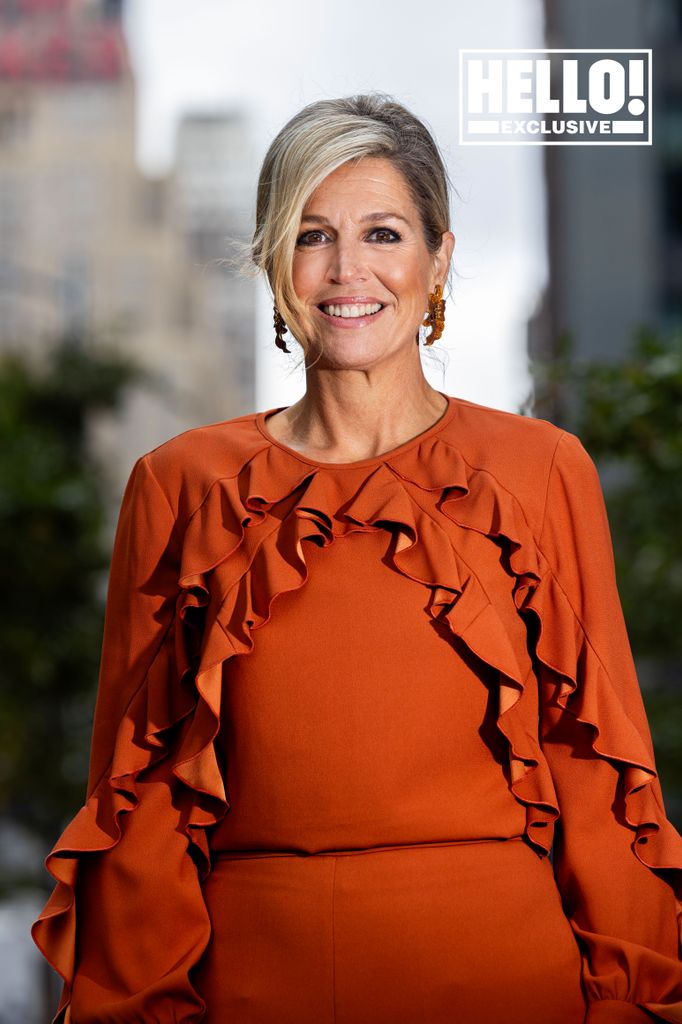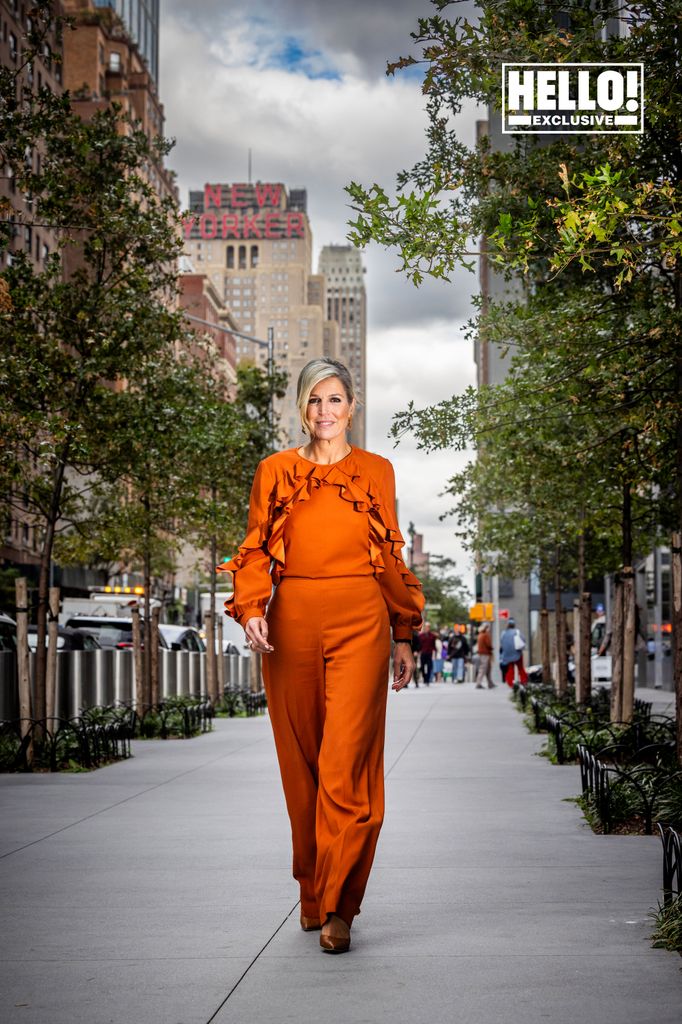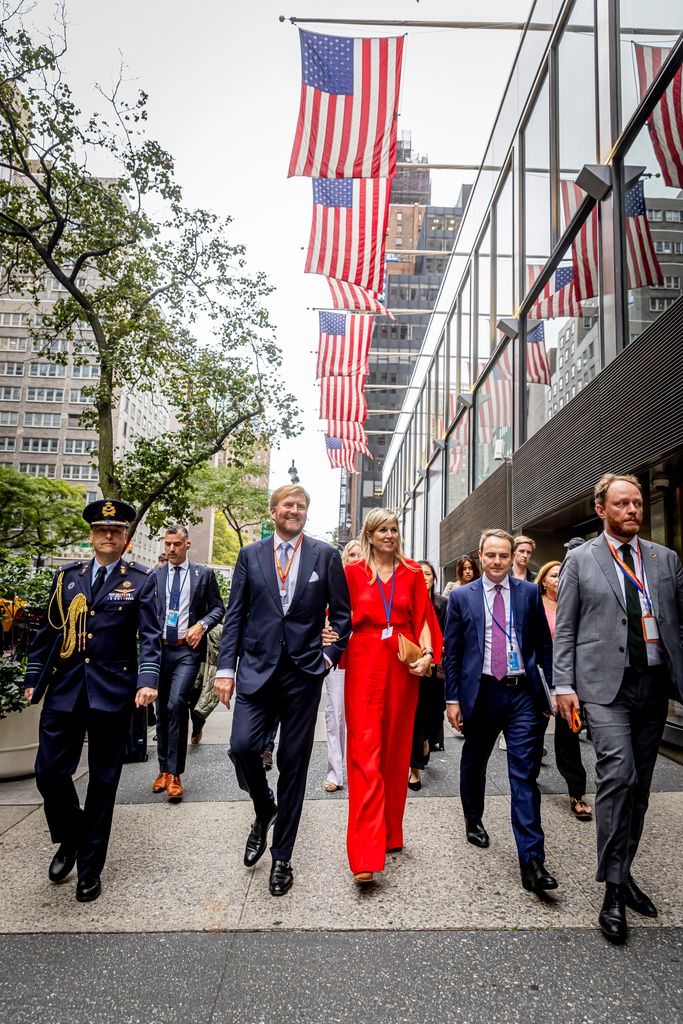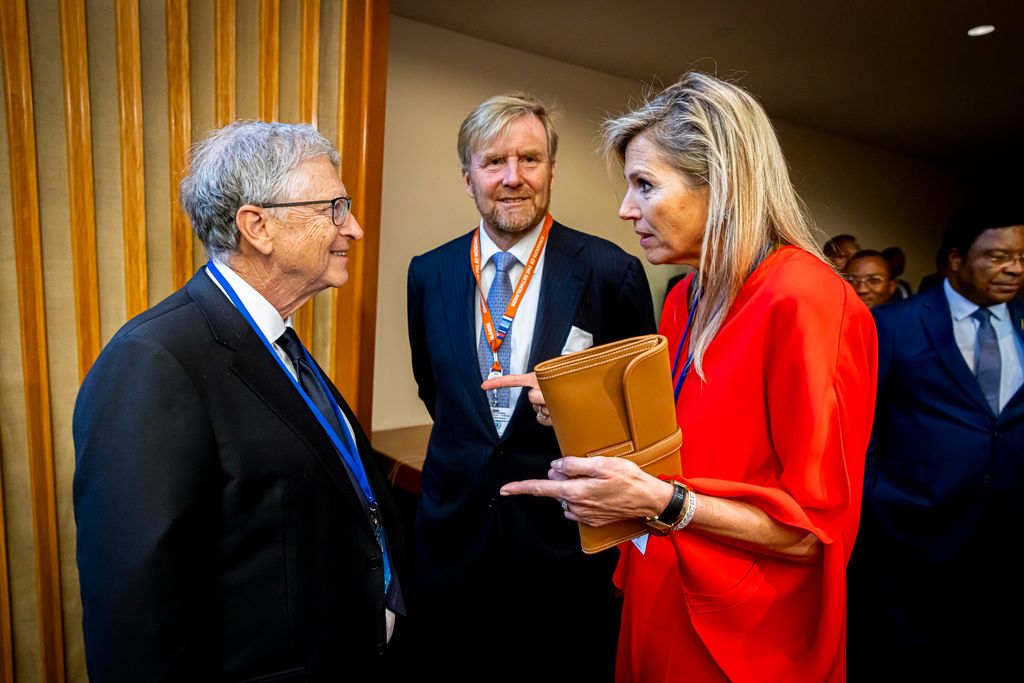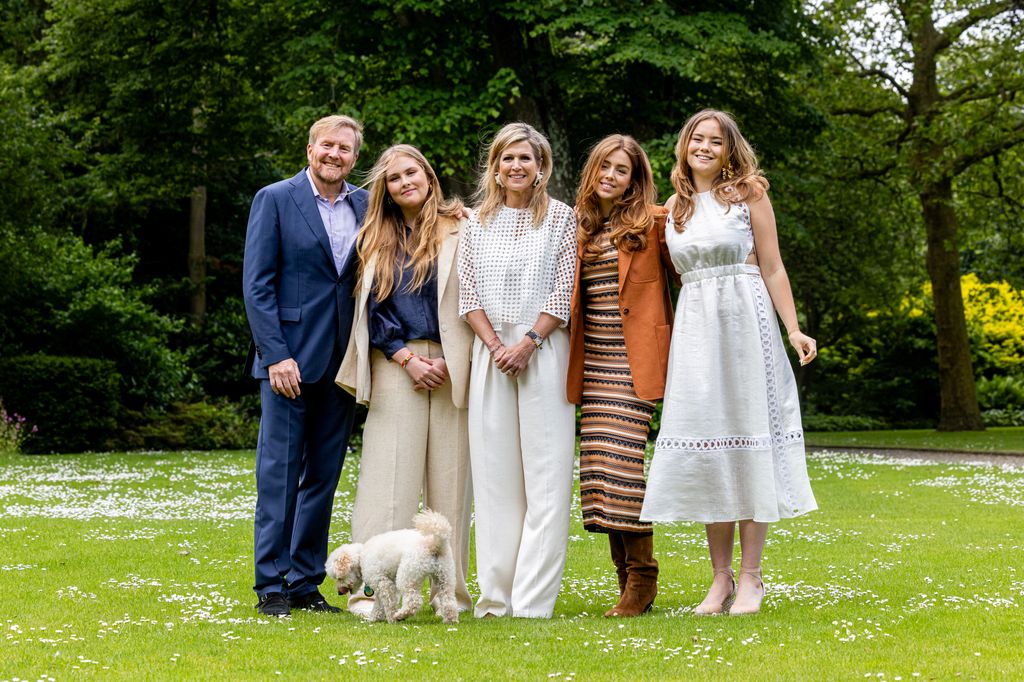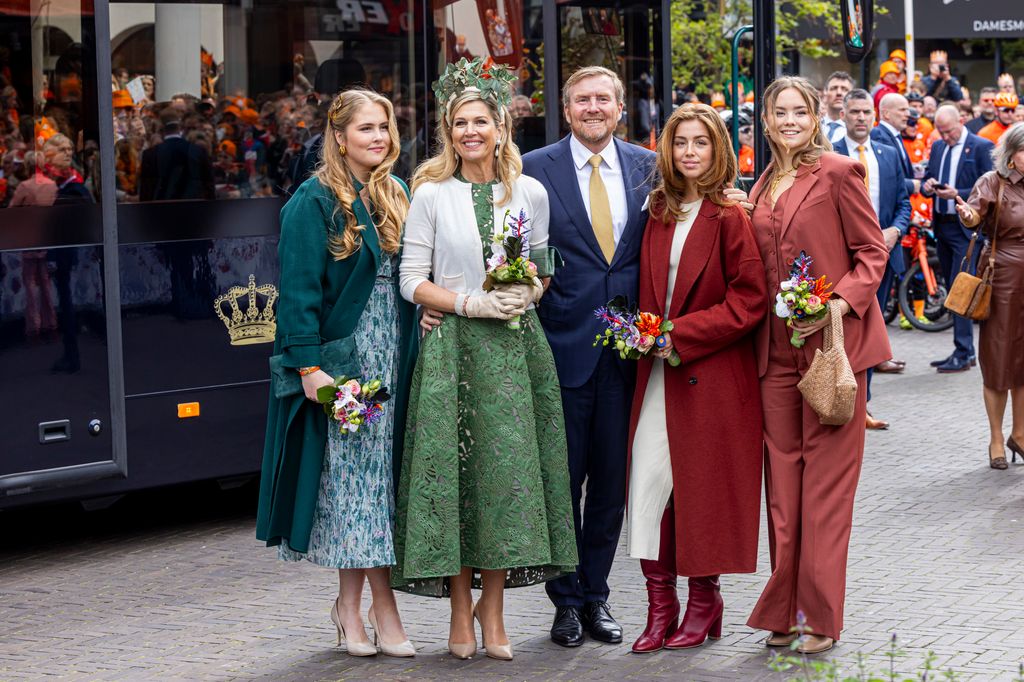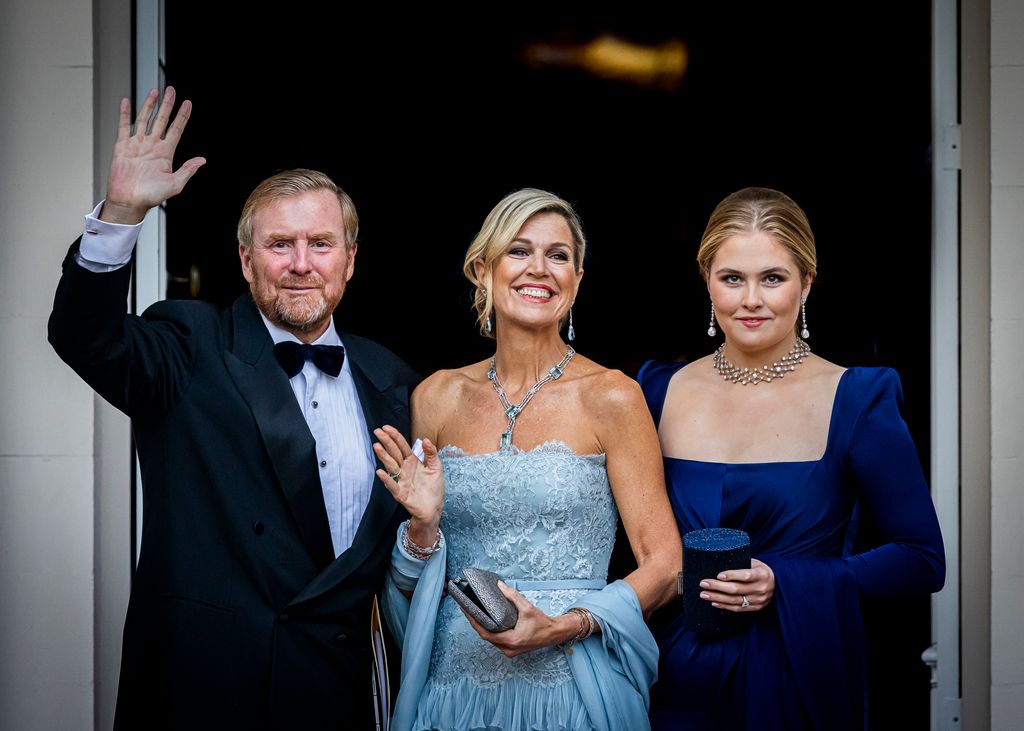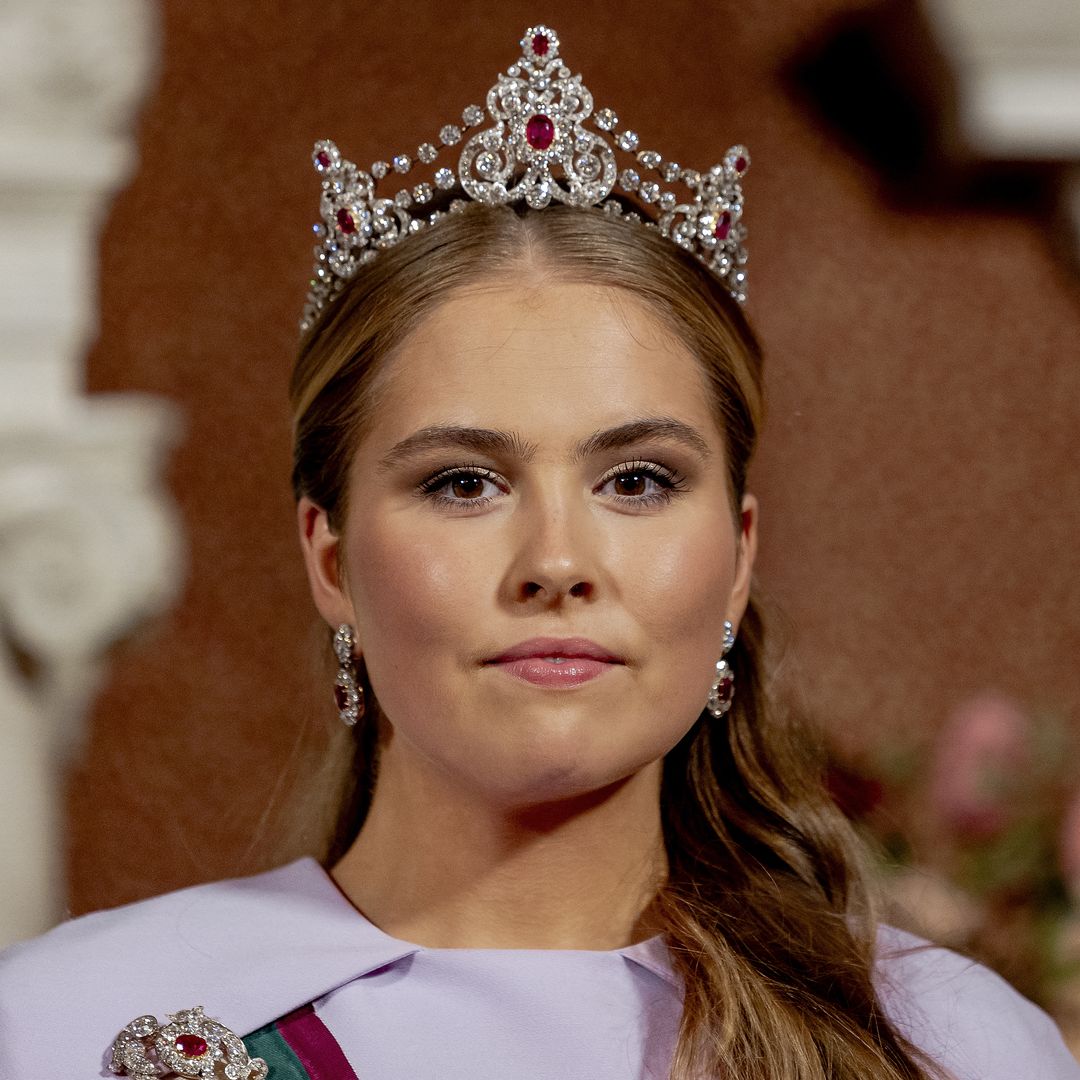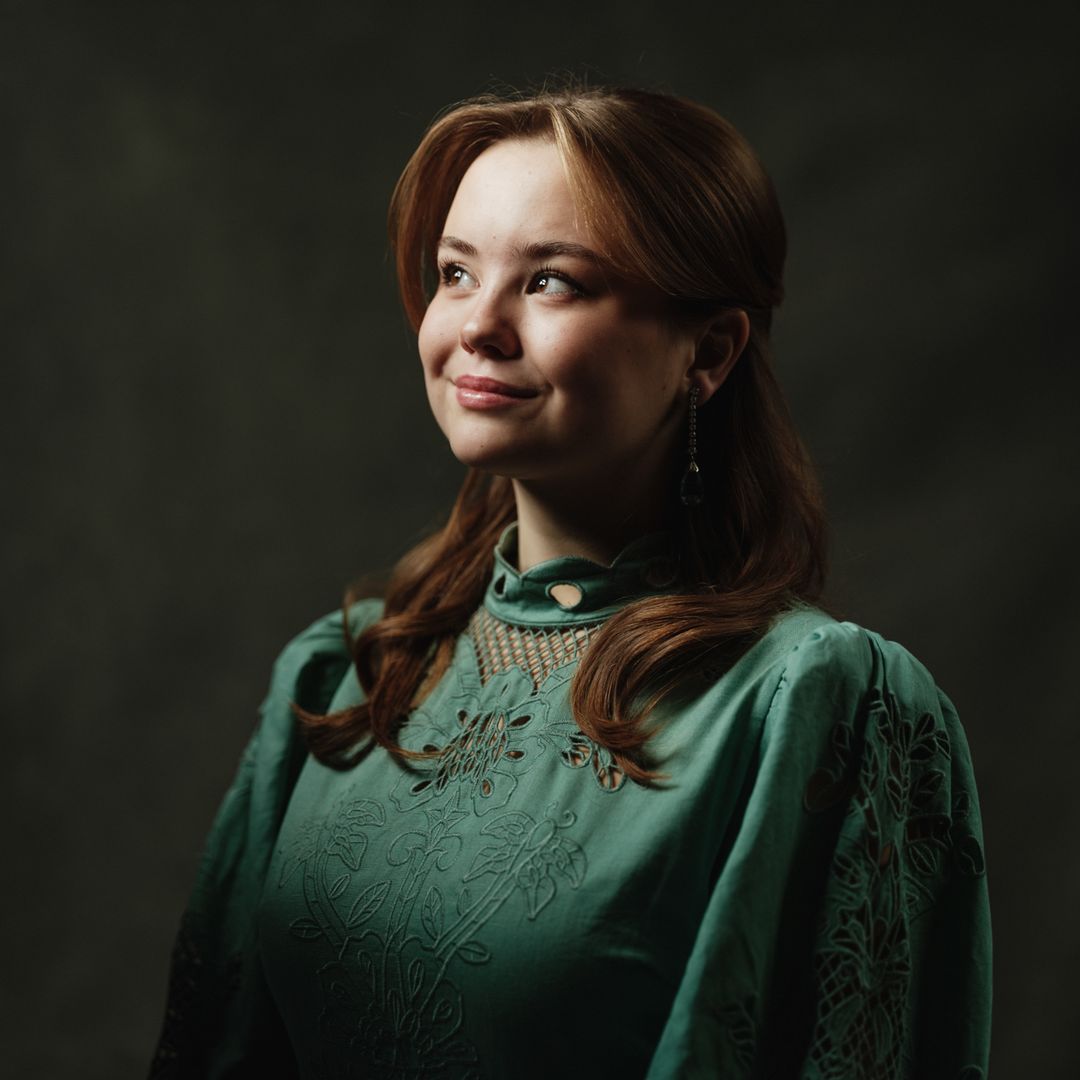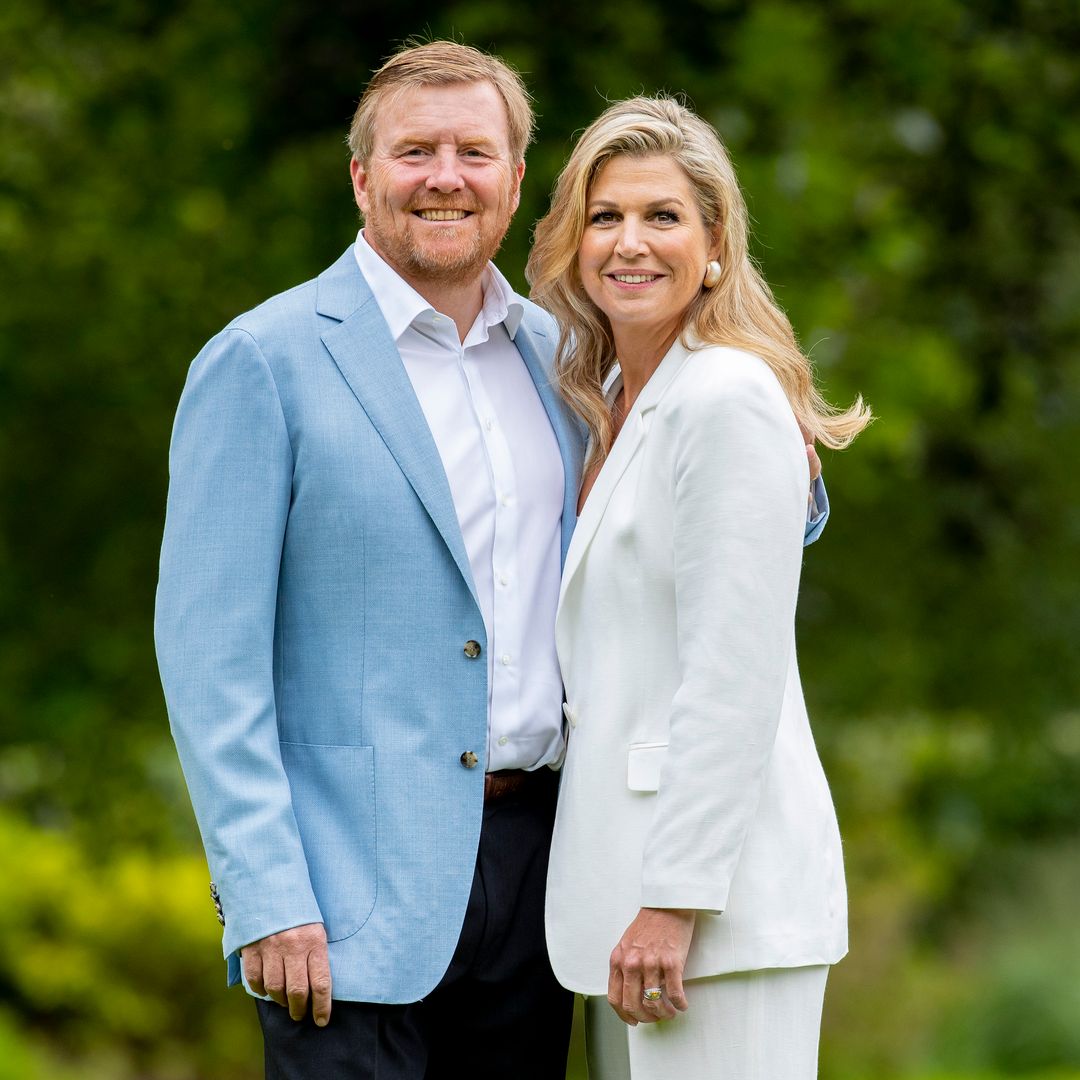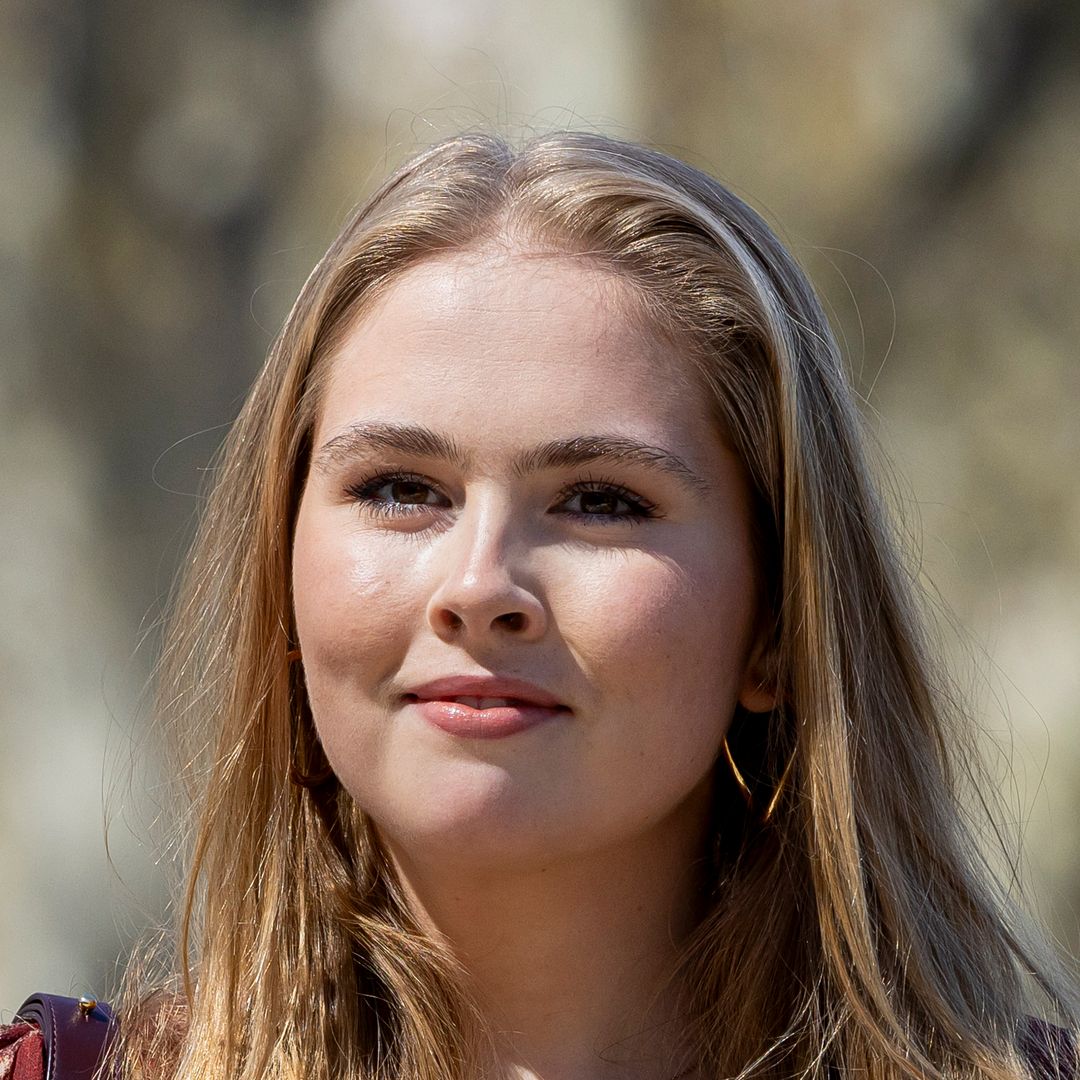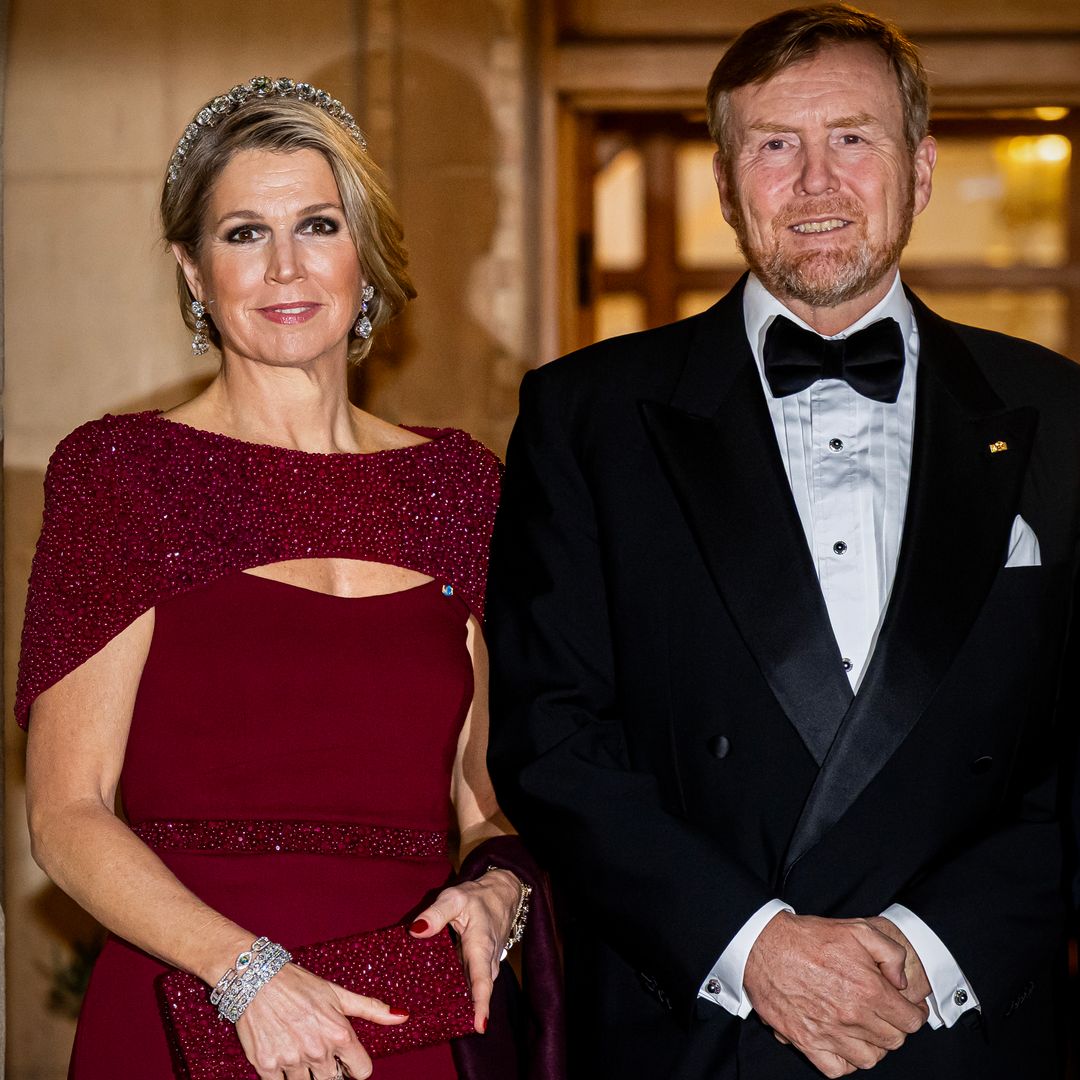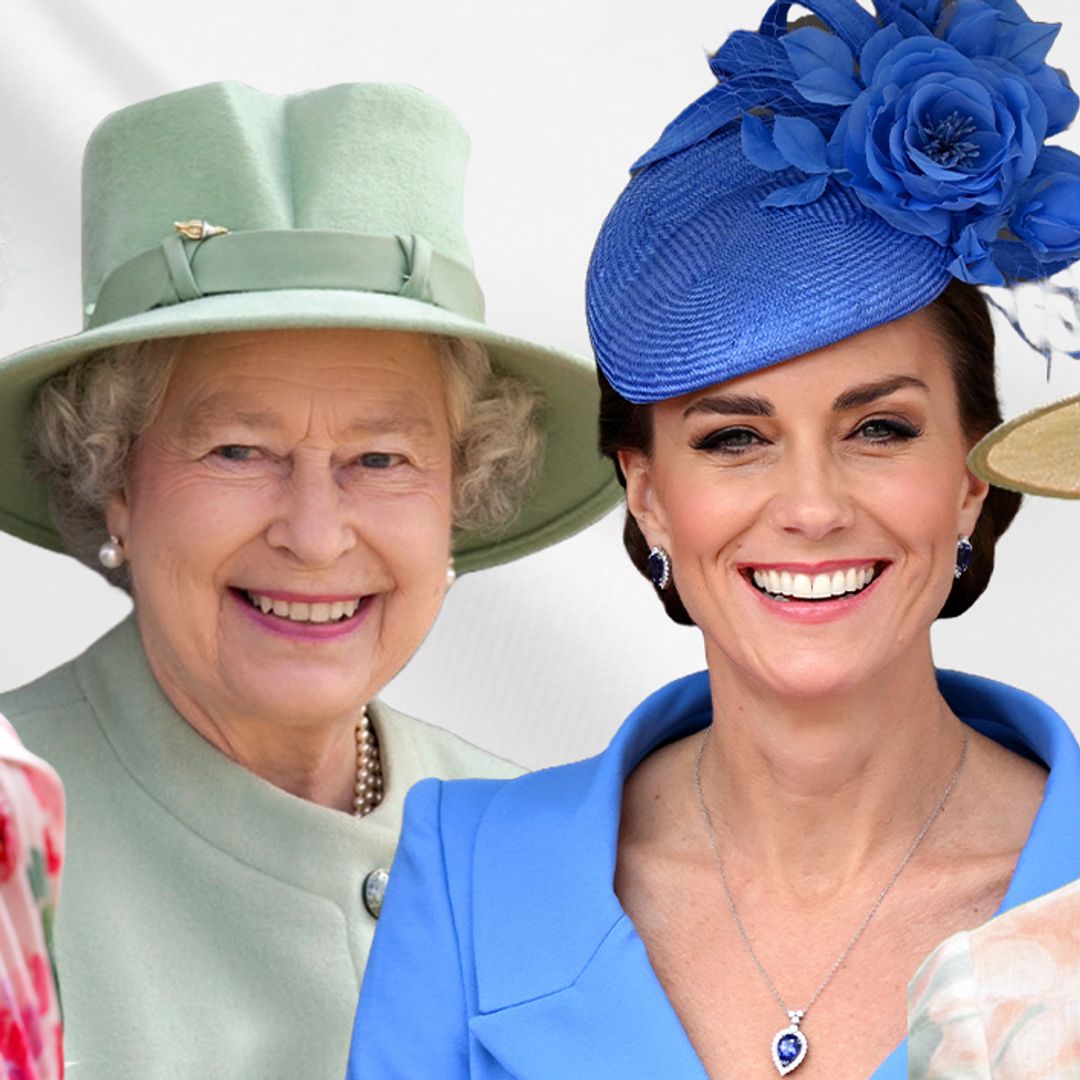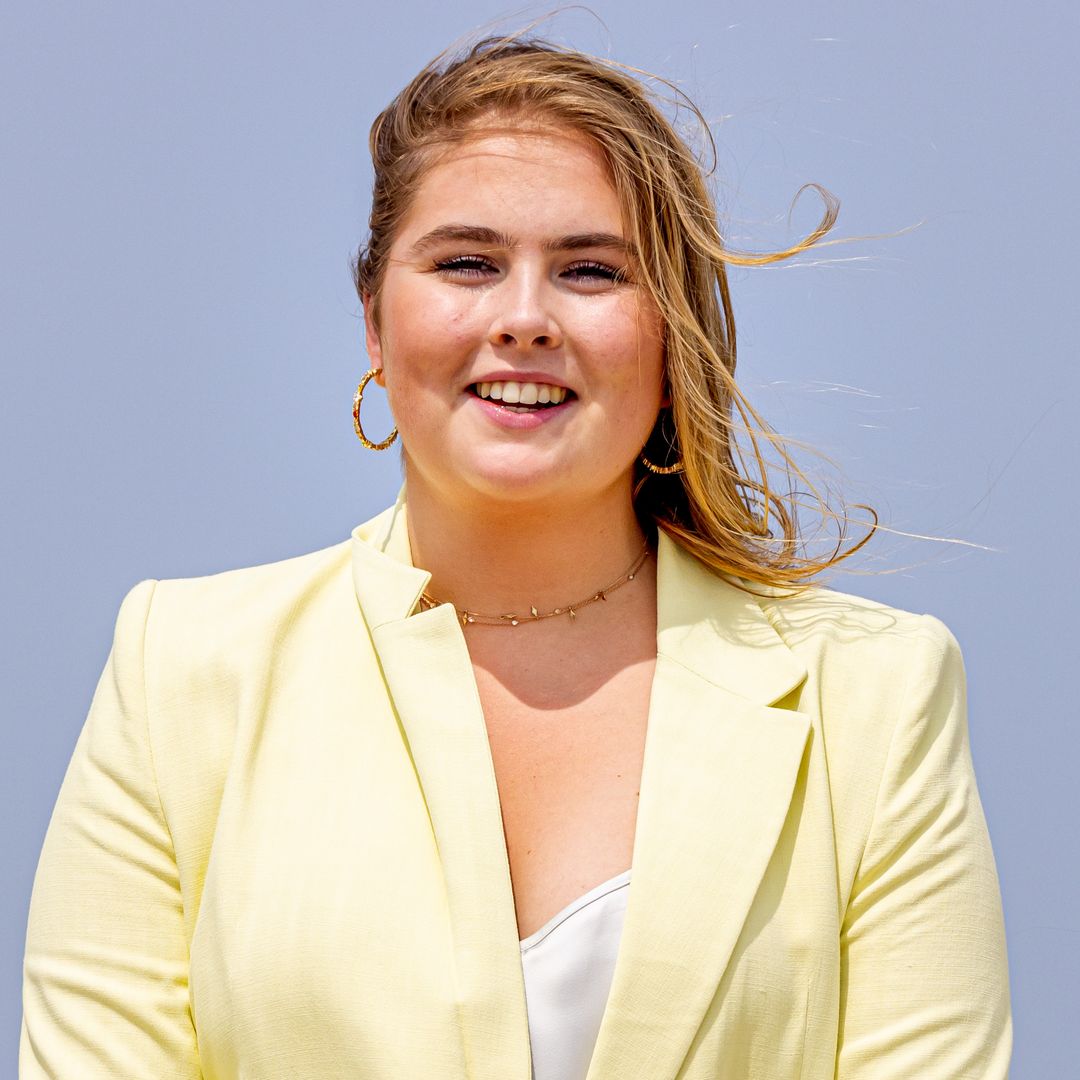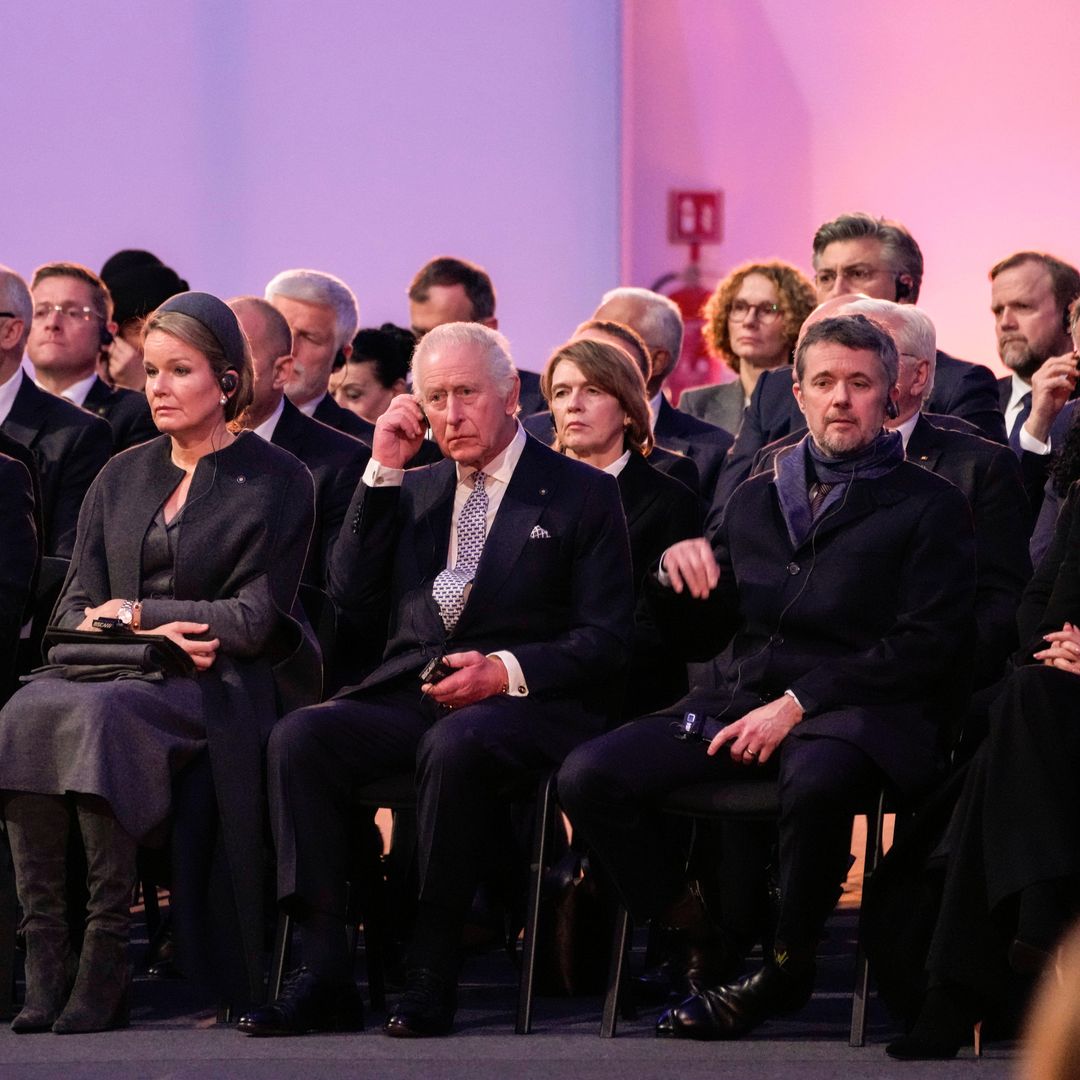By Rick Evers
You may think that being Queen is a fulltime job – and it is. But Máxima of the Netherlands does a lot more besides, including working for the United Nations.
The Argentinian-born royal, 53, who has a degree in economics and was previously employed in finance in New York, has been working for the organisation for two decades and has just celebrated being given a new role – that of special advocate for financial health.
"I am very grateful that it has been made possible, that I have been given the space to do these things," says the Queen, speaking exclusively to HELLO!'s sister title ¡HOLA!.
"At the same time, that comes with a tremendous amount of responsibility, requiring proper co-ordination with ministers and their ministries."
Here, the royal tells us about her passion for her work and why it is so important to her.
Queen Máxima, you have been working for the UN for 20 years, and for 15 of those you have been special advocate for the Secretary-General for inclusive finance for development. Fifteen years ago, few people had heard of inclusive financing. Thanks to you, this topic is now well-established, and many of the younger generation aspire to contribute to this field, with you as an inspiration…
"That really is the icing on the cake; it means my advocacy has been successful. It is not the first time I have heard that. It reminds me of my childhood. Aged 14, I thought: 'How can it be that people are forced to live on the fringes of society, in an economic sense?'
“I have even heard such stories in the Netherlands. As honorary patron of the Debtlab [a public-private partnership that aims to make the Netherlands debt-free], I recently spoke to a woman who had just got divorced and could no longer pay her bills. She did not dare leave her house. 'I feel incredibly small, as if I am not worthy,' she said.
"Divorce has an enormous impact on your family and children, but the financial consequences can be just as devastating. Her sense of hopelessness, feeling trapped in a tunnel with no light at the end, is exactly why I want to help.
“With the Debtlab, we want to support people to ask for help when they face financial problems, to prevent problematic debts – and if that occurs, to solve the debts in a sustainable way and create a positive change.”
What did you notice when you were growing up in Argentina?
“That same hopelessness. People faced fewer opportunities and dwindling chances. Every time a door closed for them, the walls were closing in. That inspired me to get involved. I wanted to make a difference for them.
“After I studied economics and worked in banks and later within the UN, inclusive finance turned out to be an incredible and effective tool to manifest that change. Financial inclusion is a means to an end and not an end in itself.
“Giving people access to formal financial services like banking and savings accounts, affordable loans and insurance is giving them the tools to use their talents and create a better future. It is wonderful that many people now share that vision.
“I have heard fantastic stories from men and women who were able to increase their income and send their children to school, and from women who became financially independent. They see the difference it makes and are driven by passion.
"But again, this is not the only way. Education is just as important and health care even more so. We need everyone on board to achieve these goals.”
So, people with major financial problems are sharing their stories with a Queen in the Netherlands…
"And I deeply empathise with them. Although I have never gone through a divorce or been tangled up in huge debts, I too have experienced tough financial times. I feel for these people and truly sympathise with them."
You are celebrating 15 years as an advocate for inclusive financing. Where do things currently stand on this issue?
"The exact figures are still coming in, but when we began in 2009, there were no numbers available at all. In 2011, we started collecting data, which was one of our first milestones. At that time, less than 50 per cent of the world's adults had access to financial services; now, we should be at around 80 per cent.
"So, yes, it has been a huge success. But this was not something I achieved on my own. I persuaded many people to get involved. At the time, the World Bank and the UN did not prioritise inclusive financing.
"Eventually, the UN included it in seven of its Sustainable Development Goals, and now it is also a priority at the World Bank, the International Monetary Fund and other international development organisations.
"More than 60 countries have a national financial inclusion strategy, with financial inclusion on the agenda of their central banks."
Is all of the work done now?
"We have still not reached between 18 and 20 per cent of the world – and those are not the easiest target groups to reach. We could say that these are the final stretches, but those last steps are perhaps the hardest.
"Think of northern Kenya, where facilities and communication are scarce, or remote islands in Indonesia. This is about reaching rural areas, women and less-educated people. It just has to get done in those smaller countries and fragile states.
That is exactly what is going to be done next. We have written a report and hope that many countries will speak out and join the cause. It really is a call for action. But everything is already in place to be able to make those final strides. My role is no longer necessary, in that respect."
Do you believe that without you as a driving force, that last group will be reached?
"Yes, I think so. I had a very good conversation with the UN Capital Development Fund, which will now look much more explicitly at the less developed countries.
"Around 50 per cent of the remaining work is in seven countries with high populations, such as India, China and Nigeria. These countries already have strategies in place. Therefore, I have the utmost confidence that it will improve even further.
"Island states with 20,000 inhabitants are more difficult to reach; countries in crisis like Sudan, too. Even though 100% might never be achieved, we are aiming to include as many people as possible."
What’s coming up next for you?
"I’ve been given a new mandate by the Secretary- General: I’ll be focusing on financial health from now on. That differs from inclusive financing, which was about people’s access to financial services and the use of those. We know that many more people can get credit now, which is amazing, because it gives them opportunities to generate more income.
“On the other hand, we see that savings have only grown by one per cent in this time. We have to look carefully at how financial services can be developed in a way that they benefit people’s financial health, so that people can build a buffer to withstand financial shocks and get insurance to protect themselves against risks and affordable loans to invest in their goals.
“Policy makers and financial service providers should put the needs of the clients first. A particular type of insurance may be of great value for us and qualitatively very useful, but that same insurance might not be useful at all for a farmer in Northern Kenya. They cannot wait six months on settlements, but must be able to buy seeds in order to grow their crops tomorrow. It’s about looking at financial products in a different way.
“We are also going to include the private sector, looking at issues from the perspective of the needs of the people: a new way of looking at savings, insurance, credit, payment methods and so on.”
Some people describe you as a workaholic – would you say that is true?
"[Laughs] I would not know…"
One of the leaders of a government party in the Netherlands recently indicated that the royal family should stick to ceremonial tasks: cutting ribbons, attending openings and so on. How important is it for you that you are able to do the work you currently do?
"I will continue to do this for as long as I get the freedom to do so and I still have the energy to keep up with it. On top of that, I can also make a big difference when it comes to cutting ribbons, just the same."
You have visited many countries in Asia and Africa, but what is it like for you to work in Latin American countries?
"Ultimately it is easier for me, since I speak Spanish. I also understand their culture a bit better, so I can connect with people much better on those aspects. But at the same time, I have had the opportunity to work with a plethora of fantastic advisors – in Asia and Africa, for instance.
"To be fair, whether it is Latin America or Africa, Europe or Asia, it is about being able to make a difference, not where it is easier. And it is precisely in countries where it may not necessarily be easy that a lot of difference can be made."
Your eldest daughter, Crown Princess Catharina-Amalia, is studying politics, psychology, law and economics at the University of Amsterdam. The curriculum includes many subjects that are related to your work. Do you learn from each other?
"Do we pick each other's brains? Well, she asks me a lot of questions. And when she has to write papers, yes, she often asks me for feedback. I then give her my advice or tell her examples from my work."
Not the other way around just yet?
"Do I learn from her? Yes, it is always useful to learn from younger people, because they have a completely different perspective. So absolutely – I learn from everyone I meet, including my daughters."
You have travelled all over the world, making 48 country visits during the past 15 years; what role have your family played in that?
"My husband and three daughters have all been a huge support. As a mother, I sometimes had to make difficult decisions. As a working woman, I often had to leave the children and my husband behind. My mother's heart has always broken a little.
"But in doing so, they have also had a mother as an example – a mother who always worked and always went for it. I hope that they will do the same."
This interview appeared in the latest issue of HELLO! out now. You can subscribe to HELLO! to get the magazine delivered free to your door every week or purchase the digital edition online via our Apple or Google apps.
